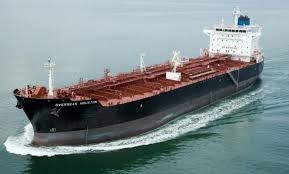The Federation of Oils, Seeds and Fats Associations (FOSFA) is an international trade association https://fortiorlaw.com/news/fosfa-arbitration/ founded to represent participants in the oils, seeds, and fats markets. Established in 1968, FOSFA's primary role is to safeguard the interests of those involved in the trading of these commodities. Headquartered in London, FOSFA has offices in Geneva, Kyiv, Beijing, and Singapore. It is renowned for drafting standardized pro forma contracts that simplify and expedite the contracting process for its members.
These standardized contracts are designed to streamline the process for international transactions, allowing parties to agree on essential terms such as goods, price, quality, delivery, and timing without having to renegotiate each contract in detail. Instead, they refer to a specific pro forma, which contains detailed terms.
FOSFA's model arbitration clause ensures that disputes are resolved under English law. However, it is important to note that the FOSFA clause includes a "Scott v Avery" provision that restricts parties from seeking interim measures such as "worldwide freezing orders" (WFO) before the courts. If the parties wish to avoid this restriction, they must explicitly exclude it from their contract. If a party breaches this clause (for instance, by seizing disputed goods), the other party can seek an "anti-suit injunction" from the High Court of Justice. This injunction prohibits the case from being heard outside of arbitration and typically requires the breaching party to cover the costs.
Which Rules Apply? The latest version of FOSFA's arbitration rules is dated April 1, 2021. The applicable rules are those in effect at the time the contract was signed, not when the dispute arises. For example, if a contract was made in December 2020 and a dispute occurred after April 1, 2021, the arbitration rules from April 1, 2020, not 2021, would apply.
FOSFA's rules and pro forma contracts are not publicly accessible and are available for a fee. Older pro forma contracts and regulations can be requested by FOSFA members.
FOSFA regularly updates its arbitration rules and pro formas, which can significantly impact arbitration outcomes. For instance, the most recent rules extended the time limit for non-quality claims from 120 days to one year.
Time Limits FOSFA arbitration rules specify different time limits for submitting claims based on the nature of the dispute:
- Quality Disputes: Claims must be submitted within 90 days from the date of unloading (for CIF, CIFFO, C&F contracts) or delivery (for FOB, Ex-tank, Ex-mill, and Ex-store contracts).
- Other Disputes: Claims must be filed within one year from the actual shipment or delivery of the goods, or from the end of the contract period for shipment or delivery, whichever occurs later.
Previously, the time limit for non-quality disputes was 120 days until April 1, 2021.
Arbitration Costs FOSFA arbitration is relatively affordable compared to other commercial arbitration options in England. Claimants must pay a deposit of £5,000 for first-tier arbitration and £10,000 for appeals within 30 days of filing a claim. Generally, the losing party bears the arbitration costs.
Unlike GAFTA, FOSFA allows for the recovery of legal costs from the losing party, although full reimbursement is not guaranteed. Arbitrators consider factors such as the conduct of the parties and the proportionality of the costs relative to the claim. Typically, successful parties can recover 60-80% of their costs, though there have been instances where arbitrators denied cost recovery in simpler disputes.
Dispute Resolution Procedure FOSFA arbitration operates on a two-tier system: an initial tier and an appeal tier. The arbitration rules consist of the FOSFA Rules of Arbitration and Appeal (the standard rules) and the Rules for Small Claims Single Tier (which involve a sole arbitrator and no appeal).
Under the standard rules, the claimant appoints an arbitrator, and the respondent has 30 days to appoint their own. FOSFA then appoints a third arbitrator to head the tribunal, though parties may agree to a sole arbitrator if desired.
Documents and applications are submitted in writing or electronically. The arbitration process involves:
- The claimant filing a claim.
- The respondent submitting a reply.
- The claimant providing a response to the reply.
- The parties may request further exchanges of objections, potentially leading to delays.
Challenging a First-Tier Arbitration Award Parties may appeal a first-tier arbitration award to FOSFA within 28 days of the award's issuance. The appeal is reviewed by a Board of Appeal consisting of five arbitrators appointed by FOSFA. The respondent has 21 days to prepare a reply, and parties may request further explanations.
Appeals involve re-examining the case and can include new evidence. Parties may also appeal both first-tier and appeal awards to the High Court of Justice in London, though such appeals are rare and must adhere to the grounds specified in the Arbitration Act 1996.
Enforcing a FOSFA Arbitration Award If the losing party does not comply with the award voluntarily, the winning party can apply to a national court where the debtor is domiciled or where their assets are located. The court will verify the arbitration clause and the compliance of the parties before recognizing and enforcing the award. Once recognized, the award is referred to enforcement authorities for the collection of assets or other enforcement measures.



